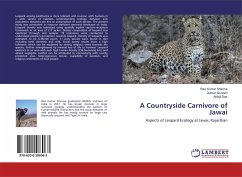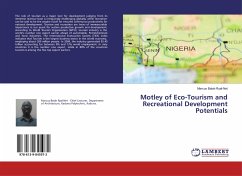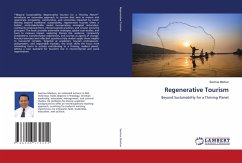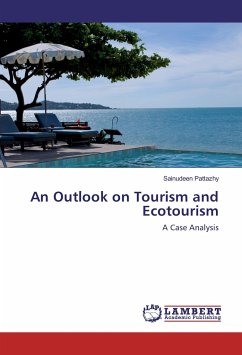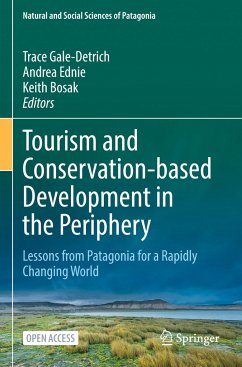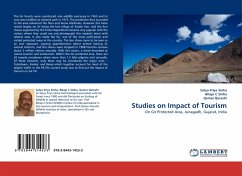
Studies on Impact of Tourism
On Gir Protected Area, Junagadh, Gujarat, India
Versandkostenfrei!
Versandfertig in 6-10 Tagen
32,99 €
inkl. MwSt.

PAYBACK Punkte
16 °P sammeln!
The Gir forests were constituted into wildlife sanctuary in 1965 and its core area notified as national park in 1975. The protection thus accorded to the area enhanced the flora and fauna attributes. However this fame rested largely on its being the last refuge of Asiatic lion, and the lion shows organized by the forest department became very popular with the visitors where they could see and photograph this majestic beast with relative ease. It also made the Gir, one of the most well-known and visited protected areas in the country. The lion show came to be seen as an over exposure, causing a...
The Gir forests were constituted into wildlife sanctuary in 1965 and its core area notified as national park in 1975. The protection thus accorded to the area enhanced the flora and fauna attributes. However this fame rested largely on its being the last refuge of Asiatic lion, and the lion shows organized by the forest department became very popular with the visitors where they could see and photograph this majestic beast with relative ease. It also made the Gir, one of the most well-known and visited protected areas in the country. The lion show came to be seen as an over exposure, causing apprehensions about animal loosing its natural instincts, and the shows were stopped in 1988.Tourism receives about 2 million visitors annually. With this sector, a trend described as nature tourism and ecotourism. Within the Gir protected area, there are 26 temple complexes where more than 1.5 lakh pilgrims visit annually. Of these however, only three may be considered the major ones Tulsishyam, Kankai, and Banej which together account for most of the pilgrim traffic in the PA.The current study was to find out the impact of tourism on Gir PA.



